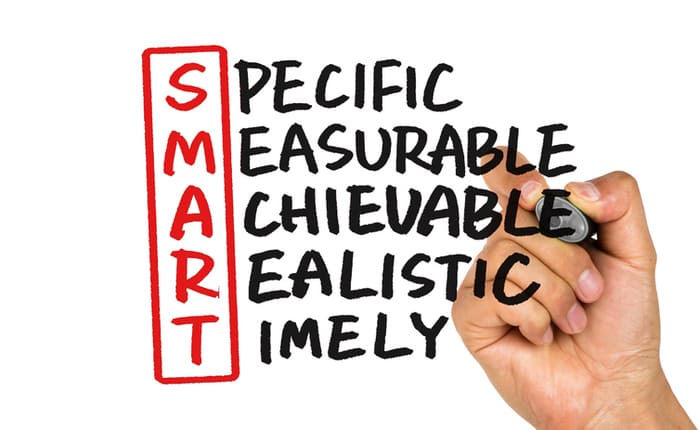Sales motivation is key to your team’s performance!
Are you trying to motivate your sales team? Wondering what motivates a good salesperson?
Maybe you’re seeking sales incentive ideas that will motivate your B2B sales team?
If you are, then introducing some sales motivation strategies will be crucial to your success. Think of sales motivators like an energy drink, instantly energizing your sales team and giving them the motivation to sell.
Before we jump into some sales motivation ideas for your team, let’s start with why sales motivation is necessary and how it can impact sales performance and sales productivity.
Why is Sales Motivation Important?

Selling is activity-based, meaning to generate sales, we need to repeatedly practice proven methods or practices, such as how to prospect or how to close a deal.
Success results when we repeatedly accomplish these activities, maintaining a positive attitude and clear focus on our sales targets.
Unfortunately for the average sales professional, many barriers can present themselves. Examples can include rejection by prospects, objections raised by a buyer, or even pushback from a sales manager.
Over time, these barriers can take a toll, even on the most experienced sales professional, resulting in low motivation levels.
Low motivation is a salesperson’s worst nightmare as it directly influences confidence, resulting in lower levels of activity, lower self-confidence, and even frustration.
Maintaining high motivation levels for your sales team is the key to long-term success—higher motivation results in more sales, which can directly influence the retention of top sales talent.
A highly motivated sales professional has improved client acquisition rates, more generation of new sales leads, and an increased sales volume. Additionally, studies have shown that motivated sales reps or agents are more engaged with their clients and, in turn, have more extended client or customer retention rates.
Profile of a Motivated Salesperson
What is the profile of a motivated salesperson? What motivates salespeople? What forms of motivation for sales reps are most effective?
Let’s start by looking at the two different forms of motivation.
Psychologists suggest that our personal preferences determine our behaviors for motivation. There are two influential forms to consider, namely intrinsic vs. extrinsic motivation.
Each form of motivation can have a differing effect on our behavior in pursuing goals.
What Is Extrinsic Motivation?
Extrinsic motivation is when a sales professional is motivated to behave in a particular manner or pursue a goal because they want to earn a reward or avoid a punishment. Their behavior results from wanting to get something in return for their efforts, not necessarily because they find the behavior personally satisfying.
What Is Intrinsic Motivation?
Intrinsic motivation results when a sales professional engages in a behavior because they find it personally satisfying. They pursue goals because it’s something they want to do, not solely because they may get a reward for doing so.
What motivates a salesperson then can be either an external reward or something satisfying an internal desire or need. Considering the two drivers of motivation, boosting a sales team or sales reps can be tricky.
Although many employees initially join a company based on compensation (an extrinsic motivator), they typically stay for intrinsic reasons such as enjoying the colleagues they work with, appreciating their boss, and aligning with the company’s values.
If your sales team is intrinsically motivated to sell for you, maintaining their motivation can be reasonably simple. Treat them well, providing them opportunities to learn and grow, all supported by competitive compensation and bonuses.
As long as you are a consistently supportive sales leader, they will likely stick with you.

Additionally, extrinsic motivators can also make sense as a way to provide continued motivation and reinforce basic expectations for your sales team.
When to use Extrinsic Rewards to Motivate Salespeople:
- Motivating the person to try something new they haven’t done before.
- Increase the individual’s interest in an activity they don’t find enjoyable.
- Giving feedback to reinforce the individual’s behavior.
Many salespeople dislike cold calling; however, this activity is often necessary for a strong prospecting strategy.
Providing extrinsic rewards can increase their interest in cold calling, even if they don’t find the activity personally rewarding. For example, consider providing bonuses for the number of calls made or celebrate deals closed by providing some public recognition such as “Employee of the Month.”
Knowing when to avoid using extrinsic rewards is equally essential.
When not to use Extrinsic Rewards to Motivate Salespeople:
- The individual is already interested in the activity.
- If offering a reward would make the action feel less enjoyable.
For example, if an employee enjoys attending trade shows, providing them a bonus or compensation for the number of leads they generate while at the show can demotivate them, making the enjoyable activity seem more like work.
Aside from intrinsic and extrinsic motivation, there are other reasons why salespeople can become demotivated.
Reasons for Demotivated or Lagging Salespeople

One of the best ways to motivate a sales team is to avoid demotivating them. Here are the most common ways to demotivate a salesperson:
- If commissions or bonuses aren’t paid in a timely fashion.
- If their performance measures are the same as others with more experience or better territories.
- If they cannot receive quick responses to requests from internal departments.
- If you place a ceiling on their rate of commissions.
- If delivery commitments they make to customers aren’t met, it’s beyond their control.
Other reasons for lagging performance can include a lack of product knowledge, insufficient selling skills, lack of confidence in the product or service, or general complacency in their role.
Fortunately, there are ways to energize your sales team to overcome demotivators and re-engage those who are lagging.
Let’s jump into how to really motivate salespeople.
9 Simple Sales Motivation Strategies to Energize & Engage Sales Teams
There are many simple methods that any business owner, sales director, or sales manager can use to energize and re-engage their sales team, inspiring motivation to sell.
Here are the nine most effective:
1. Set Relevant Short-Term SMART Goals

When setting goals for your sales team, ensure they are short-term, relevant to their role, and achievable.
Short-term goals are also more likely to be committed, as it’s generally easier to remain focused for shorter periods.
Goals that the salesperson directly controls are also important, as they retain accountability.
A method such as SMART goals ensures the goal is easily tracked and measured. SMART stands for: Specific, Measurable, Achievable, Realistic, and Time-Bound.
Examples of SMART Goals:
- Make 20 outbound calls to the list of new accounts by the end of the day today.
- Introduce yourself to 10 new companies while at the PDAC Convention.
- Place five follow-ups for every proposal issued during the next month.
2. Introduce Some Healthy Competition
When it comes to motivating salespeople, healthy competition can be a motivator. Competition amongst peers or industry standards can provide both extrinsic and intrinsic motivation.
A sales team will be motivated to sell when a sales incentive structure provides rewards, bonuses, and challenges that combine monetary and non-monetary rewards.
Examples of Healthy Competition:
- Providing weekly, monthly, and quarterly volume incentives.
- Daily or weekly targets that reward more than one winner.
- Time-based competitions for the number of units sold.
- Goal-based contests for the volume of revenue generated.
3. Build Trust & Motivation to Sell Through Team Building
Success in selling requires a team effort. Sales often need assistance from departments such as Operations, Finance, or Customer Service to close new business.
Additionally, creating mentoring relationships amongst the sales team and supporting each other in closing a new business can have valuable outcomes.
When you build trust using team-building activities, you create alignment around generating more sales.
Examples of Building Trust & Motivation to Sell Through Team Building:
- Provide a challenge that requires the sales team to work together to achieve.
- Bring together other departments that assist sales for leisure activities.
- Engage a company to introduce your team to formal team-building training.
- Take your sales team out to celebrate client wins and new business.
4. Be a Glass House: Share Sales Performance Results & Metrics
When you make sales metrics and results transparent, you generate healthy competition and reduce the chances of the sales team feeling as if expectations aren’t equal amongst team members.
The best practice for sharing results and metrics is to have the sales team report on their weekly prospecting and selling activities with other team members.
Examples of Sharing Sales Performance Results & Metrics:
- Increase the visibility of individual sales personnel metrics.
- Have open communication about setbacks and obstacles.
- Begin every meeting by sharing the sales team targets and big picture goals.
- Hold open discussions amongst the sales team to discuss new prospecting ideas.
5. Value Their Time & Feedback

To motivate your sales team, a strong leader must value their time and feedback. Minimizing distractions, listening to concerns, and investing time in helping the sales team overcome obstacles is the most valuable support a sales leader can provide.
When you assume that everyone on your sales team is doing their best, your role as a sales leader becomes that of breaking down the barriers that hold them back. The results are a highly motivated and high-performing sales team.
Examples of Valuing Your Sales Teams’ Time:
- Minimize the number of meetings you hold with your team, making the best use of their time.
- Share individual wins and challenges amongst the team, asking for the ideas and input of others.
- Encourage your sales team to take breaks and enjoy their time off, allowing them to recharge.
- Don’t answer questions your sales team brings to you, but rather ask, “how would you suggest we approach this,” encouraging more autonomy.
6. Practice Gratitude
One of the best ways to keep your sales team motivated is to practice gratitude. Be grateful for their time pursuing difficult prospects and on the road away from their families.
When you come from a place of gratitude, you increase intrinsic motivation and build trust amongst your team.
Examples of Practicing Gratitude:
- Reward your sales team for the effort, not just outcomes.
- Say “thank you” when a team member goes above and beyond.
- Make your gratitude personal, describing the reason you are thankful.
- Recognize the sacrifices your sales team makes in pursuing new business.
7. Compensate Generously

Compensation is a prime motivator for most sales professionals. To motivate sales reps and agents, we need to provide a generous sales compensation model.
Being generous can extend beyond wages and include additional bonuses, vacation time, paid days off, benefits, and other options.
Examples of a Generous Sales Compensation Model:
- Wages include salary, profit sharing, and benefits.
- Weekly, monthly, and quarterly sales bonuses.
- Monetary rewards for the number of days worked or unused sick time.
- Tertiary benefits include a company car, gas card, or stock shares.
8. Offer Sales Team Incentives as Motivation to Sell
When building an incentive structure for sales, some of the best sales incentive plans include non-monetary incentives.
The key is to use incentives that reward the majority rather than the minority of your sales team, offering flexibility in their application.
Consider that someone in their twenties might appreciate opportunities to stay over while traveling. In contrast, someone with children may want to return quickly and take that time home, rather than abroad.
Examples of Sales Team Incentives:
- Use of in-demand parking space for a fixed period.
- Lunch with the CEO or other top executives.
- Recognition in front of peers and other employees.
- Features in company publications or on the company intranet.
9. Offer Professional Development & Sales Training Opportunities

Top-performing sales professionals seek opportunities to grow in their knowledge and skills. For this reason, providing additional professional development or sales training opportunities can be a great motivator.
By investing in a professional development plan, you reward the employee with the opportunity to increase their income through increased sales while also satisfying the company, which will reap the benefits of these new skills.
Examples of Professional Development & Sales Training Opportunities:
- Attending a conference to learn from highly regarded professional sales speakers.
- Listening to a sales motivation talk or motivational speech.
- Watching a video series designed to increase skills in a specific area.
- Encouraging your sales team to select particular sales training or sales seminar opportunities.
What’s Your Sales Motivation Strategy?
As a sales manager, sales director, or sales leader, investing time in methods to motivate your sales team is one of the best investments you can make.
To ensure your sales motivation strategies are effective, track the progress of each initiative you introduce, and solicit feedback from your sales team.
Using this feedback to refine strategies will ensure that any motivation strategies you introduce are achieving their desired outcome.
What are the first steps you’ll take to motivate your team to sell?
© Shawn Casemore 2022. All Rights Reserved.


Share This Article
Choose Your Platform: Facebook Twitter Google Plus Linkedin